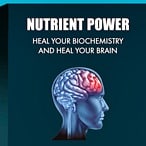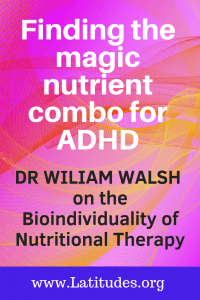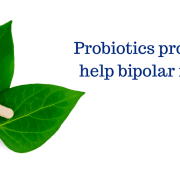Finding the Magic Nutrient Combo for ADHD (Premium)
Editor: One of the most common questions received by Latitudes.org through letters and our forums relates to which nutrients are best for neurological disorders, especially attention deficit /hyperactivity (ADHD) .
The inconvenient truth is that there is no combination of nutrients that will be helpful for everyone, and some supplements may even be detrimental, depending on a person’s biochemical makeup.
 Researcher William Walsh, PhD, has dedicated his career to defining this issue,. His main areas of focus have been with behavioral disorders, ADHD, autism, clinical depression, anxiety, bipolar disorders, schizophrenia, and Alzheimer’s disease. He has trained physicians around the world on how to determine an individual’s biochemical needs, and is the author of Nutrient Power: Heal Your Biochemistry and Heal Your Brain. We are very grateful that he serves on the Advisory Board for ACN Latitudes.
Researcher William Walsh, PhD, has dedicated his career to defining this issue,. His main areas of focus have been with behavioral disorders, ADHD, autism, clinical depression, anxiety, bipolar disorders, schizophrenia, and Alzheimer’s disease. He has trained physicians around the world on how to determine an individual’s biochemical needs, and is the author of Nutrient Power: Heal Your Biochemistry and Heal Your Brain. We are very grateful that he serves on the Advisory Board for ACN Latitudes.
Dr. Walsh has an excellent article on his website that all readers are encouraged to consult for a better understanding of this topic. A portion is excerpted below.
The good news with the bad news
The bad news is simply that there is often not an easy way to self-determine the best nutritional plan for yourself or a loved one. The good news is that with a better understanding of the complexity involved, and/or with professional help, a beneficial individualized plan can be developed.
Interestingly, we accept the fact that a given medication works well for one person while causing negative effects in another. Physicians often use a hit-and-miss approach in an attempt o find a drug that is both safe and effective for a given patient. While watching TV commercials for a certain drug we might learn that even death can be a reaction for one person while that medication is being touted as a positive life-changing intervention for others.
Yet when it comes to nutrients, we want to believe that there is a universal silver bullet, a single supplement or combination thereof that will serve to be therapeutic for everyone with a condition such as ADHD.
Biochemical Individuality and Nutrition
William J. Walsh, PhD, FACN
Excerpt See the full article here

William Walsh, PhD
Each of us has innate biochemical factors which influence personality, behavior, mental health, immune function, allergic tendencies, etc. Scientists tell us that the number of different genetic combinations possible in a child from the same two parents exceeds 42 million. It’s interesting to note that we do not possess a combination of characteristics from our parents, but instead have a diverse collection of characteristics from many ancestors on both sides of the family.
Except for identical twins, each human being has unique biochemistry resulting in quite diverse nutritional needs. Shakespeare was correct when he wrote “One man’s meat is another man’s poison.” For example, some of us are genetically suited for a vegetable-based diet and others are not. Some persons can satisfy their nutritional needs by diet alone and others must have nutritional supplements to overcome genetic aberrations.
Because of genetic differences in the way our bodies process foods, most of us are quite deficient in certain nutrients and overloaded in others. Even with an ideal diet, most of us have certain nutrients that are at very low levels with many times the RDA required to achieve a healthy balance.
The nutrients in overload must be carefully avoided in vitamin supplements or serious health problems can develop. After studying the biochemistry of 10,000 persons, we’ve learned that the greatest mischief is usually caused by nutrients that are stored in excessive amounts, rather than those at depleted levels. The most common nutrients in overload include copper, iron, folic acid, calcium, methionine, manganese, choline, and omega-6 fatty acids. Of course, these same nutrients may be in deficiency in other persons. This is why we are concerned by supplement manufacturers who attempt to develop the ideal combination of vitamins, minerals, and amino acids for the general population. This is a bit like trying to determine the ideal shoe size for the population. The truth is that multiple vitamins and minerals are too indiscriminate, and may do as much harm as good.
Each of us should ask the question, “Who am I nutritionally?” The answer to this question is important for all, but may be especially critical for persons with mental health problems.
Go to Dr. Walsh’s full article for sections on:
- Nutrients and Mental Health
- Biochemical Factors in Behavior Disorders (including ADHD and Mental Illness including overmethylation, undermethylation, copper overload, pyrrole disorder, glucose dyscontrol, toxic substances, malabsorption, essential fatty acids).









